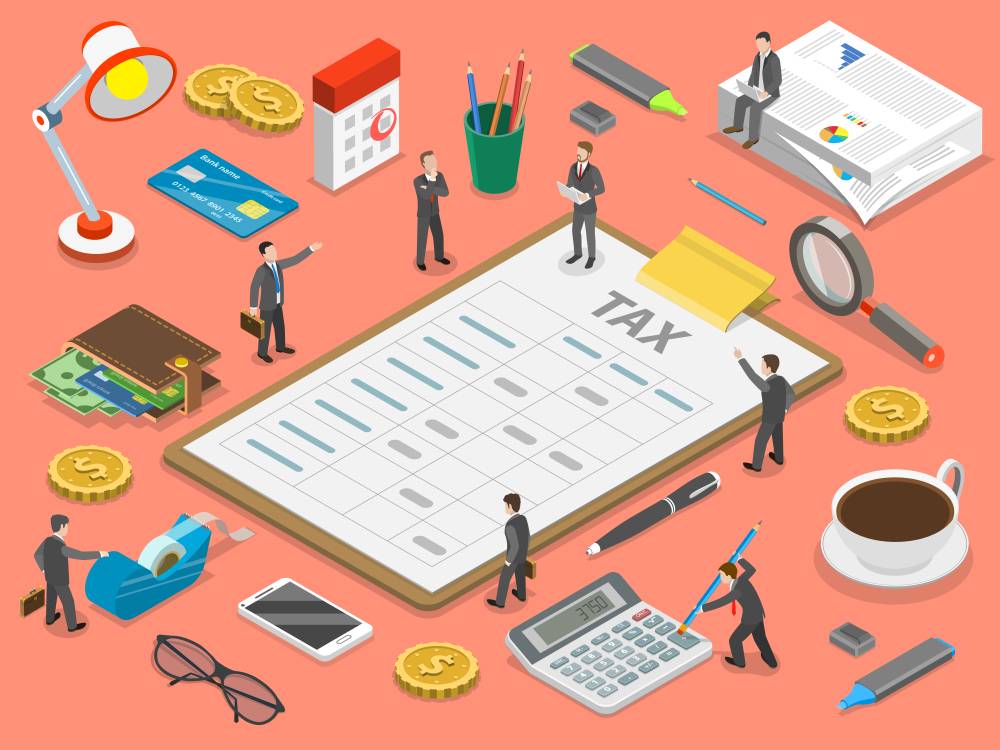 Last updated: February 22nd, 2020 11:39 AM
Last updated: February 22nd, 2020 11:39 AM
Income Tax Rate for Individuals - AY 2019-20
Individuals are required to file an income tax return each year if they have taxable income of more than Rs.2.5 lakhs. The income tax rate AY 2019-20 or FY 2018-19 for salaried individuals is as follows. Note: Financial year starts from 1st April and ends on 31st March. For example, the financial year 2018 - 19 would be 1st April 2018 to 31st March 2019. Assessment year is the year immediately following the financial year wherein the income of the financial year is assessed. Hence, in the assessment year 2019 - 20 the income tax for the period from 1st April 2018 to 31st March 2019 would be assessed.Latest Update on 26th June 2019
As per the latest notification from the Income Tax Department, taxpayers are advised to take a note of the below:Consequent to changes made in Income Tax Return Preparation Software and Schema for AY 2019-20, Please note the below: 1. Already saved draft data will not be available in case of Online ITR 1 & 4 2. In case of Offline utilities, XML has to be re-generated using the latest Income Tax Return Preparation Software.
Income Tax Rate AY 2019-20 | FY 2018-19 - Individuals less than 60 years
| Taxable income | Tax Rate |
| Up to Rs. 2,50,000 | Nil |
| Rs. 2,50,000 to Rs. 5,00,000 | 5 % |
| Rs. 5,00,000 to Rs. 10,00,000 | 20% |
| Above Rs. 10,00,000 | 30% |
Income Tax Rate AY 2019-20 | FY 2018-19 - Individuals betwen 60 years and 80 years
| Taxable income | Tax Rate |
| Up to Rs. 3,00,000 | Nil |
| Rs. 3,00,000 to Rs. 5,00,000 | 5% |
| Rs. 5,00,000 to Rs. 10,00,000 | 20% |
| Above Rs. 10,00,000 | 30% |
Income Tax Rate AY 2019-20 | FY 2018-19 - Individuals above 80 years
| Taxable income | Tax Rate |
| Up to Rs. 5,00,000 | Nil |
| Rs. 5,00,000 - Rs. 10,00,000 | 20% |
| Above Rs. 10,00,000 | 30% |
- Surcharge: 10% of income tax, where total income exceeds Rs.50 lakh up to Rs.1 crore.
- Surcharge: 15% of income tax, where the total income exceeds Rs.1 crore.
- Health & Education Cess: 4% of Income Tax. (Newly introduced through 2018 Budget)
Why Should Individuals File Income Tax Return?
Under the Income Tax Act, all individuals below the age of 60 years are required to file income tax return if total income exceeds Rs. 2.5 lakhs. In the case of individuals over the age of 60 years, but below 80 years, income tax filing is mandatory if total income exceeds Rs.3 lakhs. Individuals over the age of 80 years are required to file income tax return if the total income exceeds Rs.5 lakhs.Penalty for Not Filing Income Tax Return
Not filing your Income Tax Return would result in :- Receiving a notice from Income Tax department
- Not being able to obtain refund of excess TDS Deducted.
- Penalty interest of 1% per month or part thereof will be charged until the date of payment of taxes. For returns of FY 2017-18 and onwards, penalty of Rs 5,000 will be charged for returns filed after due date but before 31st December. If returns are filed after 31st December, a penalty of Rs 10,000 shall apply. However, penalty will be Rs 1,000 for those with income upto Rs 5 Lakhs.
- Not being able to set off Losses. Losses incurred (other than house property loss) will not be allowed to be carried forward to subsequent years, to be set off against the future gains.
Due Date for Filing Income Tax Return for Salaried Individuals
The income tax return of a salaried individual is due on 31st July.Which ITR Form should a salaried individual use?
Salaried Individuals may have to file ITR-1 or ITR-2 based on certain criteria as detailed below :Form ITR-1
Form ITR-1 must be used when the source of income is limited to Salary/Pension, One House Property and other sources (Excluding winning from lottery and race horses). Form ITR-1 should not be filed for below cases :- Income that exceeds Rs. 50 Lakhs
- Assessee has Taxable Capital Gains
- Assessee has any of the below sources of income :
- Income from foreign assets
- Agricultural income that exceeds Rs. 5000
- Income from Business or Profession
- Income from more than one house property
Form ITR-2
Form ITR-2 must be filed by individuals who are not eligible to file ITR-1, because of following reasons :- Income exceeding Rs. 50 Lakhs
- Having foreign assets / income
- Having agricultural income which is more than Rs. 5,000
- Having taxable capital gains
- Having income from business or profession as a partner
- Having more than one house property
Popular Post

In the digital age, the convenience of accessing important documents online has become a necessity...

The Atalji Janasnehi Kendra Project that has been launched by the Government of Karnataka...

The Indian Divorce Act governs divorce among the Christian couples in India. Divorce...

When an individual has more than a single PAN card, it may lead to that person being heavily penalised, or worse,...

Employees Provident Fund (PF) is social security and savings scheme for employee in India. Employers engaged...


